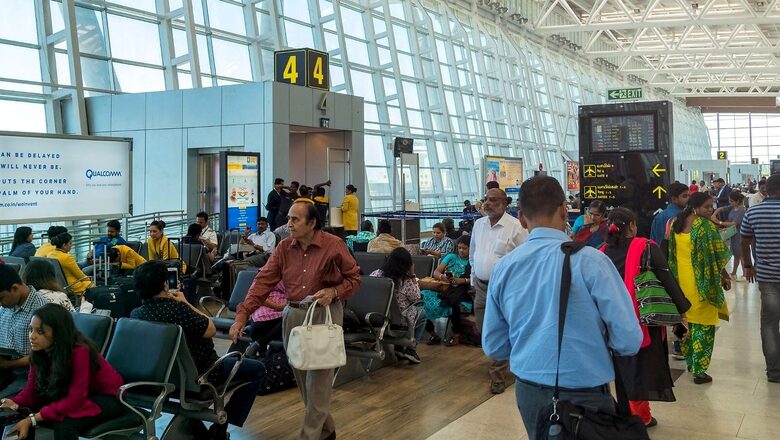
views
Chennai Airport has announced that an exclusive corridor has been created at T4 terminal to screen arriving passengers from countries ‘at risk’. It is mandatory for passengers to wait till the RT-PCR test results are out. The move comes amidst the new Omicron variant that was detected in South Africa.
What we know about B.1.1.529 or Omicron is that it has around 50 mutations, of which 32 are in spike proteins and 10 of those mutations are of a high relevance. These include H655Y, N679K and P681H mutations, which potentially increase the transmissibility. The mutations R203K and G204R are considered to be associated with higher infectivity. Similarly, there is missing gene for membrane protein, nsp6, which could result in immune escape. The mutations in N-terminal and Furin cleavage sites in spike protein may affect the immune protection as these sections bind to antibodies. The mutation in receptor binding domains helps the virus to latch onto the cell and increase transmissibility.
These are some, amongst other, factors which give scientific plausibility to change in transmissibility, infectivity, clinical features and immune escape. However, it is not necessary that a few mutations in combination would have the same effect, if reported in isolation. Considering that clinical features appear after a delay, it could take 3 to 4 weeks or even longer to understand the impact.
Amid global alarm over Omicron variant, the Centre issued new guidelines for international arrivals in India on Sunday, which will be effective from tomorrow (December 1). According to the revised rules, travellers from ‘at-risk’ countries will need to take Covid test post-arrival and wait for results at the airport.
ALSO READ: COVID-19 Omicron: Delhi Airport Has Arrangements for Up to 1,500 International Passengers
The revised guidelines are as follows:
– Passengers from “at-risk" countries will be tested for Covid post-arrival and can’t leave the airport till their RT-PCR test results are available. If found negative, they will undergo a seven-day home quarantine and be re-tested on the eighth day and if negative, further self-monitor for the next seven days.
– The travellers have to submit the self-declaration form on the online Air Suvidha Portal before the scheduled travel and to submit the last 14 days travel details.
– The travellers also have to upload the negative RT-PCR test reports on the Air Suvidha portal before commencing the journey. The test report should not be older than 72 hours prior to undertaking the journey.
– 5 percent of the total flight passengers shall be randomly tested post-arrival at the airport.
– According to the revised list, the ‘countries at risk’ include countries in Europe including the United Kingdom, South Africa, Brazil, Botswana, China, Mauritius, New Zealand, Zimbabwe, Singapore, Hong Kong and Israel.
Also Watch:
– The existing guidelines have been revised in view of reporting of a new variant of SARS-CoV-2, named Omicron (B.1.1.529), which has been now classified as a Variant of Concern by the World Health Organization, the Health Ministry said.
– The Delhi international airport has made arrangements to accommodate at the airport up to 1,500 international passengers at a time, including those coming from from ‘at-risk’ countries, till results of their RT-PCR tests taken after arrival are declared. Each passenger who will undergo the RT-PCR test will be charged around Rs 1,700.
Read all the Latest Auto News here
















Comments
0 comment